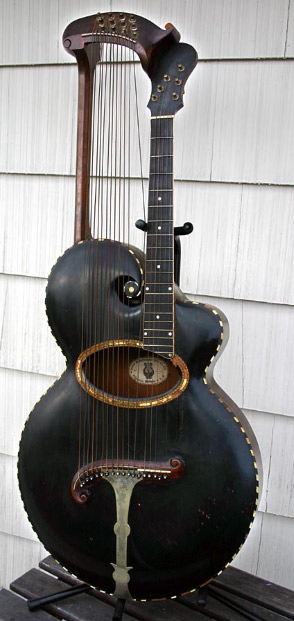By Ray West
The world of musical equipment is vast and overwhelming. Every day there is a “new and better,” a “magic tone,” a gadget with every guitar sound you have ever heard, ready to help you reach new musical heights. Yet with all the advanced technology at our disposal, one thing remains true: We love our old guitars.
With acoustic guitars, the reason is simple: Older acoustic guitars sound better. As the wood ages and dries, it literally shrinks. This improves a guitar’s responsiveness and resonance. It becomes more expressive to play, louder and clearer to listen to.
All guitars are subject to environmental factors that make acquiring some wood too expensive to be cost-effective. This has resulted in lesser-quality instruments becoming both more accessible and more popular. Consequently, guitars made from these harder-to-obtain materials become more desirable. Whether the materials make a difference in quality is up for debate.
Craftsmanship also makes old guitars coveted. The simple truth is, if an instrument is old, plays great, looks great and sounds great, chances are great that the guitar will always be great. A new instrument can make no such claim. Also, the onset of CNC, or Computer Numerical Control, dramatically changed guitar manufacturing. It used to take a person three days to make an acoustic guitar neck by hand; now it takes four hours. Yes, consistency is good for making money; but a little human inconsistency, while still maintaining high quality, allows for a few special instruments to be made. And those are magic to those of us who love them.
Of course an older instrument also stands to have provenance. Was it owned by someone famous? Was it seen in a movie? Is it rare? Was it made somewhere, or by someone, special? Did it witness you bawl like a baby when your girlfriend left you? All those things an older instrument can attain throughout the course of its existence. Sometimes it can even be proven, which is nice.
There is another, less tangible aspect of owning an old instrument. Writing music can be a personal and private thing. There may be some songs no one will ever hear, as they’re too personal for the writer to give to the world. There are songwriting times that bring us to tears. There are moments of anger, hurt, love, guilt, redemption, joy, remorse and any other emotion you can name that this instrument may have helped someone express. Someone may have bled on this guitar from playing it so hard or so long. The instrument will physically show signs of a lifetime’s worth of dedication, love, talent and history. And your hands will fall into the same place as who knows how many hands before you. You will add your own bit of wear. Your playing will leave its own impressions on this instrument. In the end, the life experience and emotions you put into this instrument will shape it for the next set of hands.



















